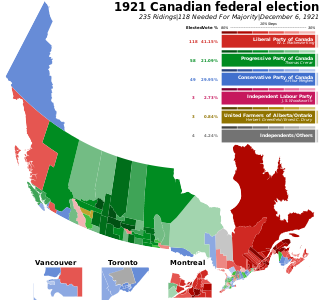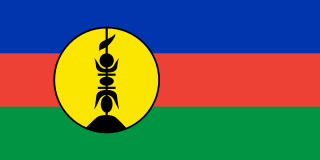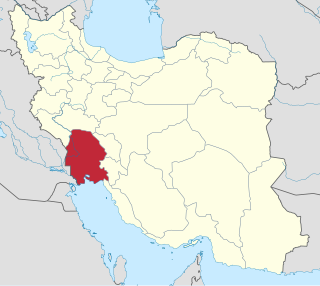
The 1993 Canadian federal election was held on October 25, 1993, to elect members to the House of Commons of the 35th Parliament of Canada. Considered to be a major political realignment, it was one of the most eventful elections in Canada's history. Two new regionalist parties emerged, finishing second and third in seat count. Most notably, the election marked the worst defeat for a governing party at the federal level and among the worst ever suffered by a governing party in the Western democratic world. In a landslide, the Liberal Party, led by Jean Chrétien, won a majority government.

The 1921 Canadian federal election was held on December 6, 1921, to elect members of the House of Commons of Canada of the 14th Parliament of Canada. The Union government that had governed Canada through the First World War was defeated, and replaced by a Liberal government under the young leader William Lyon Mackenzie King. A new third party, the Progressive Party, won the second most seats in the election.

The Social Credit Party of Canada, colloquially known as the Socreds, was a populist political party in Canada that promoted social credit theories of monetary reform. It was the federal wing of the Canadian social credit movement.

The 1917 Canadian federal election was held on December 17, 1917, to elect members of the House of Commons of Canada of the 13th Parliament of Canada. Described by historian Michael Bliss as the "most bitter election in Canadian history", it was fought mainly over the issue of conscription. The election resulted in Prime Minister Sir Robert Borden's Unionist government elected with a strong majority and the largest percentage of the popular vote for any party in Canadian history.

The 1921 Alberta general election was held on July 18, 1921, to elect members to the 5th Alberta Legislative Assembly. It was one of only five times that Alberta has changed governments.

The Kanak and Socialist National Liberation Front is a pro-independence alliance of political parties in New Caledonia. It was founded in 1984 at a congress of various political parties. Its supporters are mostly from the Kanak indigenous population but also include supporters from other ethnic communities.

General elections were held in Pakistan on 7 December 1970 to elect members of the National Assembly. They were the first direct general elections since the independence of Pakistan and ultimately the only ones held prior to the independence of Bangladesh. Voting took place in 300 general constituencies, of which 162 were in East Pakistan and 138 in West Pakistan. A further thirteen seats were reserved for women, who were to be elected by members of the National Assembly.
The Freedom Party of Manitoba, founded as the Libertarian Party of Manitoba, is a provincial political party in Manitoba, Canada, advocating cannabis legalization.

Parliamentary elections were held in Iran on 13 March 1980, with a second round on 9 May. They were the first elections to the Majlis since the overthrow of the Shah, and were contested to a considerable degree on a party basis.

Constitutional Convention elections were held in Iran on 3 and 4 August 1979. The result was a victory for the Islamic Republican Party. There were 10,784,932 votes cast in the elections, marking 51.71% turnout. Of all members elected, 68% were clerics.

On 3 August 1979, Constitutional Convention election was held in West Azerbaijan Province constituency with plurality-at-large voting format in order to decide three seats for the Assembly for the Final Review of the Constitution.

On 3 August 1979, Constitutional Convention election was held in Khorasan Province constituency with plurality-at-large voting format in order to decide seven seats for the Assembly for the Final Review of the Constitution

On 3 August 1979, a Constitutional Convention election was held in Khuzestan province constituency with plurality-at-large voting format in order to decide four seats for the Assembly for the Final Review of the Constitution.

On 3 August 1979, a Constitutional Convention election was held in Fars province constituency with plurality-at-large voting format in order to decide four seats for the Assembly for the Final Review of the Constitution.
On 3 August 1979, a Constitutional Convention election was held in East Azerbaijan Province with plurality-at-large voting format in order to decide all six seats for the Assembly for the Final Review of the Constitution.

On 3 August 1979, a Constitutional Convention election was held in Hamedan Province constituency with plurality-at-large voting format in order to decide two seats for the Assembly for the Final Review of the Constitution.
On 3 August 1979, a Constitutional Convention election was held in Zanjan Province with plurality-at-large voting format in order to decide two seats for the Assembly for the Final Review of the Constitution.

On 3 August 1979, a Constitutional Convention election was held in Kerman Province constituency with plurality-at-large voting format in order to decide two seats for the Assembly for the Final Review of the Constitution.

On 3 August 1979, a Constitutional Convention election was held in Kermanshahan Province constituency with plurality-at-large voting format in order to decide two seats for the Assembly for the Final Review of the Constitution.

On 3 August 1979, a Constitutional Convention election was held in Sistan and Baluchestan Province with plurality-at-large voting format in order to decide the two seats for the Assembly for the Final Review of the Constitution.
















